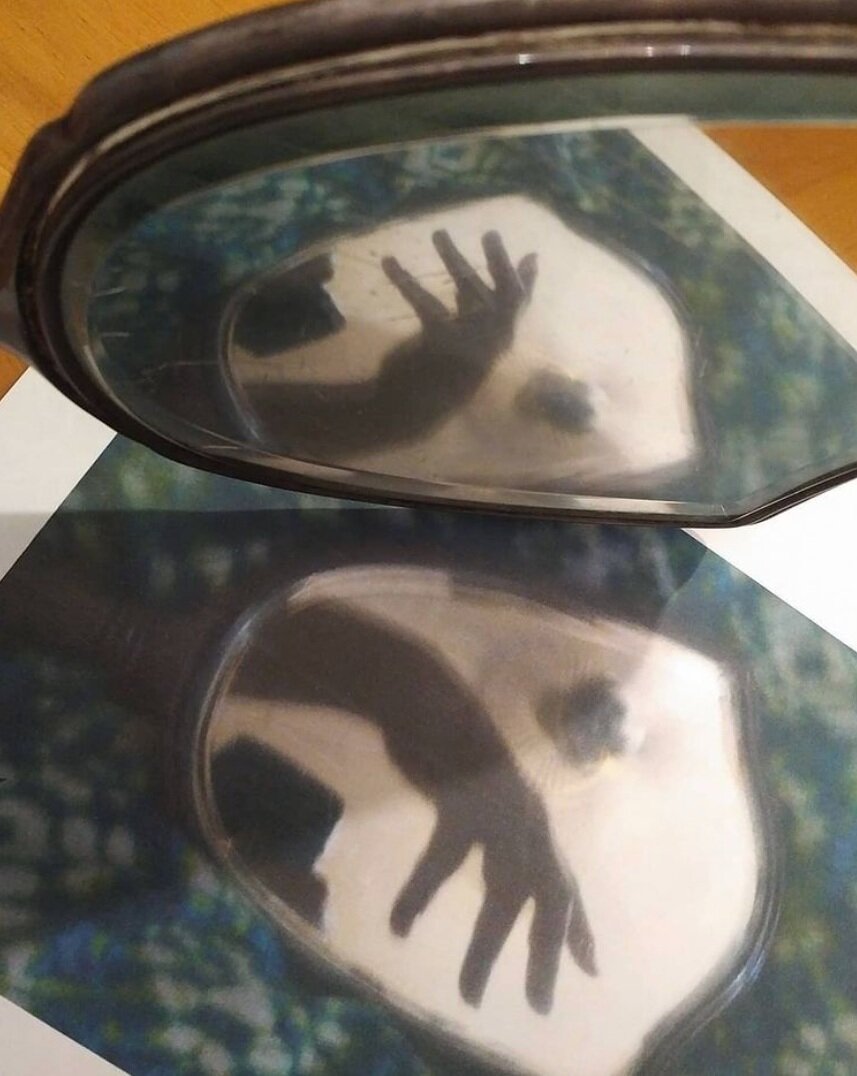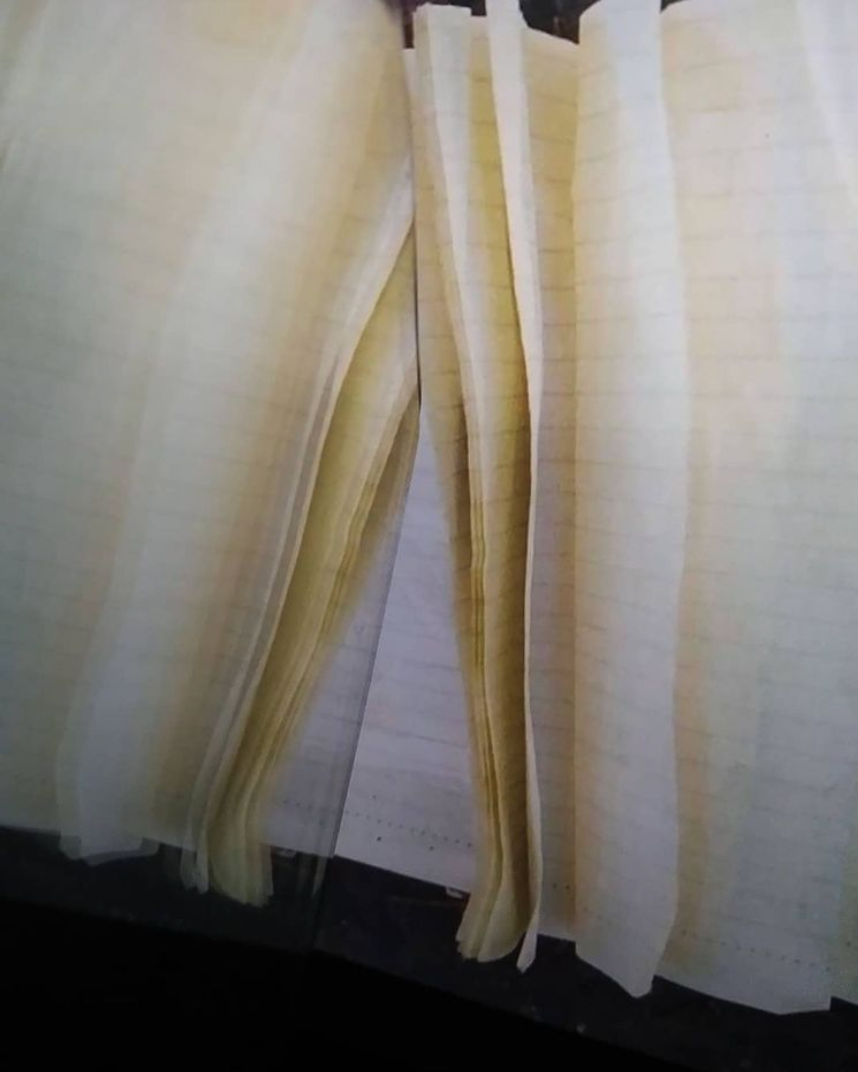Alberta Poetry: Spring Round-up posted
(June 13, 2024):
It is appropriate that Margaret Christakos starts That Audible Slippage (University of Alberta Press) with a quote from John Cage, whose work experiments with the possibilities inherent in sound and listening, for sound dominates in these poems; or, as is often the case, the absence of sound. As you follow the sway of the lines, you are always aware of breath, and breath’s interconnectedness with sound. That Audible Slippage is a deeply theorized collection that looks also at other absences—of memory, of loved ones, or of social interactions during the pandemic.
Reading from
That Audible Slippage
at the Speakeasy Reading
Series/ Glad Day Books,
April 2024, and
at the online launch presented by
University of Alberta Press.
An article about That Audible Slippage in the Toronto Star,
by Wanda Praamsma (April 26, 2024)
Through a bitter Edmonton winter, mourning her mother’s death and the isolation of the pandemic, Margaret Christakos found a new way to relate to her poetry
The dead and listening to the dead, and the focus on the tiny sound events all around her, infuse the poems that make up the first half of That Audible Slippage, which is very much a book about grief, but also of listening.
“Aug 28”
A reading from the book-length poem, Dear Birch, on the occasion of the book’s launch 13 May 2021 (pandemic time).
Thanks to my Editor for the Press Jim Johnstone, publisher Aimée Parent Dunn and everyone at Palimpsest Press.
https://palimpsestpress.ca/books/dear-birch/
spaciousness. Series of 4 vis/po photographs, 8 Jul 2021

spaciousness 1. 8 Jul 2021

dead shell. 8 Jul 2021

false equivalencies. 8 Jul 2021

"muskoka" (outpost). 8 Jul 2021
Announcing Permanent Revolution: Essays, by Gail Scott
For the last two years I was tickled-pink to work as editor with Gail Scott on her sleek, rousing new collection Permanent Revolution: Essays, published by Bookhug in May 2021.
From my Editor’s Afterword …
Gail Scott recognizes the shape of her sentences as they are coming into change — as contradictory as this sounds, it is key to conversing with all of her compositional impulses. At the threshold of re-issuing selected essays on writing from the 1970s and 1980s, with a brilliant suite of new and revised essays that run contemporaneously with her novels from the mid-90s through to the present moment, Gail Scott’s capacity to continually re-instigate writing-as-change is delightfully audible.
…
These essays direct their pull to other writers and thinkers thinking through a radical poetics meaningful for social change. Gail Scott’s experimental prose signals in the ongoing present like this, each essay caressing in some sense the others, dispersing an elixir spiked with excess and bold exactitude. These essays never swerve from reconnoitring with the queer and political: that a writer needs to cause permanent revolution in the world, to language, to genre, to make leakier shapes of identity, gender and narrative.
Margaret Christakos, Toronto, 2021

Check in [Her Paraphernalia, Anastasia V handheld device.) 11 Apr 2021

Found Notebook of the Present. First posted 11 Nov 2020 (pandemic fall). Reposted 11 Apr 2021 (pandemic spring 2).

Interception. 11 Apr 2021

The notebook at night. 11 Apr 2021

Interfold. 11 Apr 2021

Tent (with handheld device). 11 Apr 2021

Sweet roasted golden beets with Clea. #plateseries 11 Aug 2021
![Whose space. 13 Apr 21 #feminist memory Notebook of the present [palimpsest].](https://images.squarespace-cdn.com/content/v1/5f064c50bc73cd66056d3bce/3906cb24-2599-440f-b439-7fc7729dbb4f/Screen+Shot+2021-04-14+at+11.48.30+AM.png)
Whose space. 13 Apr 21 #feminist memory Notebook of the present [palimpsest].

April handdance with wallpiece. 14 Apr 2021
presence of the distant just now #instantmind
This piece considers my own archive of time and/in writing while wagering an ongoing unsayability of the just now.
The piece “began” with a new improvised text framed within a scale of two uneven proximities: “so it happens in an utterance / an instance / an instant // it is a happening / it happens / it opens // sounds go to words / clarify into words / wounds leak out”
This text, doubled, creates a diagrammatic biomorphic reference to the twin body, both brain and breasts, situated with a time signature of 4 Mar 2021 — date of visual utterance only. The audibility of the image depends upon auralized reading, as a form of listening and also as a form of waiting.
The first text cited from my own archive (from Not Egypt, Coach House, 1989) invokes a halfway lake in northern Ontario which is literally bisected by a bridge, and which I travelled across with my father on Oct 12 1985 (I was 23). I was writing in my sketchbook in the passenger seat next to him as he drove, grappling with the way our shared silences on long drives enmeshed in me a bifurcated comfort and unsettledness within an ongoing presence of the father. This approximation of consciousness and the unconscious as two lobes always activated in improvisatory poetry writing was already a continual gesture of effort in my work. However, the feminist and language-writing diaristic impulse in the mid-1980s contains a kind of private interiority and concrete materiality that has been torn open by the social mediated digital frenzy of confession, reportage, self-surveillance, and anxious object impermanence of what is considered endemic to the present now.
The second archival text is a section page from Sooner (Coach House, 2005, therefore 20 years “later”), a collection which uses hyperlengthy queer (in that pronouns and gender identities are processually recombined) narrative word-counted poems to investigate my apprehensile relationship with romanticist nostalgia and experimental feminist subjectivity of being in-the-present in one’s time/era/political context, and the temporalities of waiting in/and desire (soon, sooner, not-yet, simultaneous). The section “Waiting” houses the long poem “Waiting,” a pseudo-literary comic-ironic talk on proper short story form, traversing sexual arousal, domestic undoing, and care relations of maternal ongoingness.
The self-epigraph for the book is “And if this is the ending/ you know how you got here,” one of many paradoxical declarations about the recombinatory consciousness of being in time as a kind of embodied self-memory. The section epigraph borrows two lines from other poems in the collection, “Breasts still make out / the present of the distance,” with its embedded pull toward the always-also-desired and the elasticity of a constantly movemental experience of time itself resetting what is present and distant in the perspectival self. Today I am assembling an intermingling of these just nows with the always already obsolete, self-gobbling erasure which is our operation of digital time — a core product of capitalist time — a signal a priori temporality that rules our every waking recapitulation into fragmented bits of what is happening even as it has no longer happened and through which our notion of living a continuous leakage of waiting as being is time-stamped, traceable, surveilled and aligned with the doubled probabilities of organic all-time and global end-times… Thus I retrieve and scribble with my gestural “hand” — the way one would refute an errant charge on a receipt or doctor a leave-of-absence note — in bloody red, with the body’s leakage…
4 Mar 2021
[these thoughts also moving with the thinking around and inside time I have been listening with in many a Zoom reading/panel, especially by Laurie Anderson, Fred Moten, Layli Long Soldier, Candace Hopkins, Dionne Brand, Divya Victor, Sara Ahmed, several panels on Eva Hesse, and conversations with Marusya Bociurkiw on her work on the feminist archive…among many other intermingled propositions…]
#instantmind is an ongoing poetry/visual online project I have been composing and proposing since about 2010…
[and yes, there is a slippage from “sounds’ to “wounds” — it happened…

Thanks to Uche Umezurike for this online interview, published by Prism 0n 5 Nov 2020:
https://prismmagazine.ca/2020/11/05/poetry-is-an-ethical-inquiry-an-interview-with-margaret-christakos/
UU: Something I deeply liked about charger is how each poem cycle, even though it has its own story to relay, is interconnected with the other cycles. The casual reader might find the typographical style––the fragments, spaces, and abrupt pauses––quite challenging. Why did you choose to write in this form? …
charger 12
A video reading of “charger 12,” from charger, published by Talonbooks, Spring 2020.
3 Sept 2020. Direction: Silas Christakos-Gee. https://talonbooks.com/books/charger
charger 6
A reading from charger, published by TalonBooks, Spring 2020. 31 July 2020. Direction: Silas Christakos-Gee. https://talonbooks.com/books/charger
charger
Birthed as the lockdown charged in, my new poetry collection charger was lovingly published by Vancouver’s Talonbooks in the Spring of 2020. Over the last few months I have read from the book on a few online stages, including as a guest of the MAW performance series (April 16); in a special collaborative reading with Oana Avasilichioaei, at the Atwater Poetry Project online reading series (April 29); and at the Art Bar Poetry Series (https://www.facebook.com/groups/artbarpoetry/ and then scroll down to July 14, with Sue Chenette). Check YouTube for these charger soundbites, as well as for some shorter polyvocal experiments reading from the text.
Order charger here:
https://talonbooks.com/books/charger
from #instantmind
Should just now 21 July 2020 end of procedure.
Ongoing text and digital collage project 2017–








